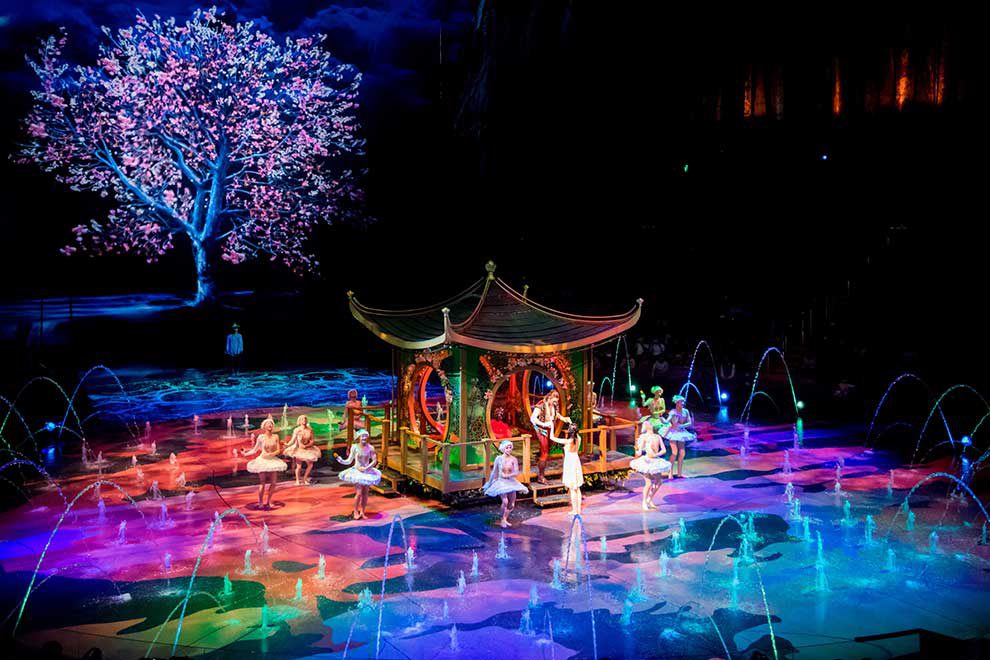The ‘wow effect’ created in audiences witnessing an innovative event can have a lasting and positive spill-over for hospitality-related brands, finds a study by 2 IFT scholars.
“Event innovation notably induces a more favourable corporate image” for the event organiser in the minds of event-goers, wrote IFT scholars Dr. Fiona Yang and Ms. Sherry Tan.
Their study findings – based upon the impact of City of Dreams’ resident show “The House of Dancing Water” – also concluded that corporate branding efforts linked to innovative events were “more effective” in securing repeat business than in attracting new clientele.
“The results imply that ‘repeaters’ are more inclined to develop loyalty when they perceive a corporate image as innovative and unique,” wrote Dr. Yang and Ms. Tan, referring to a brand’s existing consumer audience. This represented “cost-effective” effort for the company involved, “indicating less need for persuasion efforts and lower promotional expenditure for marketers,” among such consumers, they added.
The conclusions were featured in the paper “Event innovation induced corporate branding”, published in 2017 in the International Journal of Contemporary Hospitality Management.
The study was based on data collected from 280 tourists visiting Macao who were interviewed after watching “The House of Dancing Water”. The participants were asked to complete a questionnaire designed to measure their opinions on matters related to the show, including event innovation, perceived value, corporate image and their feelings of loyalty to the corporation involved.
“One of the major findings was that event innovation is not only the key to value enhancement of the featured show but also an efficacious instrument” for enabling consumers to identify with the brand of the parent company and building corporate loyalty among them, the scholars wrote in their paper, adding that “customers can draw inferences from their event experiences and in turn form an image of the entire business and other products or services of the same corporation as innovative and unique.”
Dr. Yang and Ms. Tan noted this meant that a firm could take advantage of its customers’ prior positive experience of the brand or the brand’s products when it introduced a new product or service.
Role of innovation
Dr. Yang and Ms. Tan said hospitality operators and event planners could make use of the study results to learn how to harness innovation in the organisation of events for corporate branding purposes.
The IFT researchers encouraged industry professionals to promote innovative events in connection with corporate branding, saying: “Exposure to advertising of the innovative elements of a featured event will have a positive effect on the brand image” in the minds of consumers, and on the likelihood of individual consumers gravitating to the parent company behind the event.
The combination of such advertising and experience of the featured event would in all likelihood “favourably affect the image of the parent brand and bring positive spill-over effects” among consumers, the researchers noted.
To build events perceived by audiences as innovative, operators should invest in “astonishing visual thrills, a spectacular stage, fabulous lighting and audio effects,” suggested the study authors. Moreover, with a better understanding of the emotional connection customers can make with corporate brands, “marketers may strive to advertise a story that captures the imagination of the public and conveys a sense of excitement, happiness and energy.”
The IFT researchers additionally suggested operators make use of user-generated content – for instance, on their corporate websites – to showcase customers’ admiration of the event and of the company. Marketers were also advised “to adopt a customer co-creation approach” by incorporating customer-designed elements into event storylines and marketing practices in order to facilitate the active involvement of audiences in a particular event.
The IFT researchers stated that the various consumer reactions to event innovation detected by their study – in terms of first-time and repeat visitors – in the context of corporate branding suggested the need for different marketing strategies to effectively target each segment of the customer base.
“Marketers are recommended to supply potential new visitors with information in various media… to highlight the excitement and novelty brought by the incredible auditory and visual effects [of the innovative event],” they wrote. In this way, first-time visitors could have “a more favourable emotional experience” when attending the particular event, potentially leading to spill-over effects regarding positive feelings about overall corporate branding.
Repeat customers were, by contrast, focused on gaining practical benefits when it came to innovative events, namely in terms of “quality, price, and product/service performance”. Therefore companies could offer them value “by implementing competitive pricing strategies, e.g. bundled packages for other tourist activities, including hotel accommodation, fine dining and local tours, or discounted prices,” it was suggested by the IFT scholars.
More info
IFT Lecturer Ms. Sherry Tan specialises in event management. She holds a master’s degree in business administration from the University of Montreal, in Quebec, Canada. Prior to joining IFT, Ms. Tan worked in the meetings and conventions industry, gleaning experience from organising a wide range of events. Her research interests include event tourism, tourist behaviour and service management.
https://doi.org/10.1108/IJCHM-09-2015-0512









